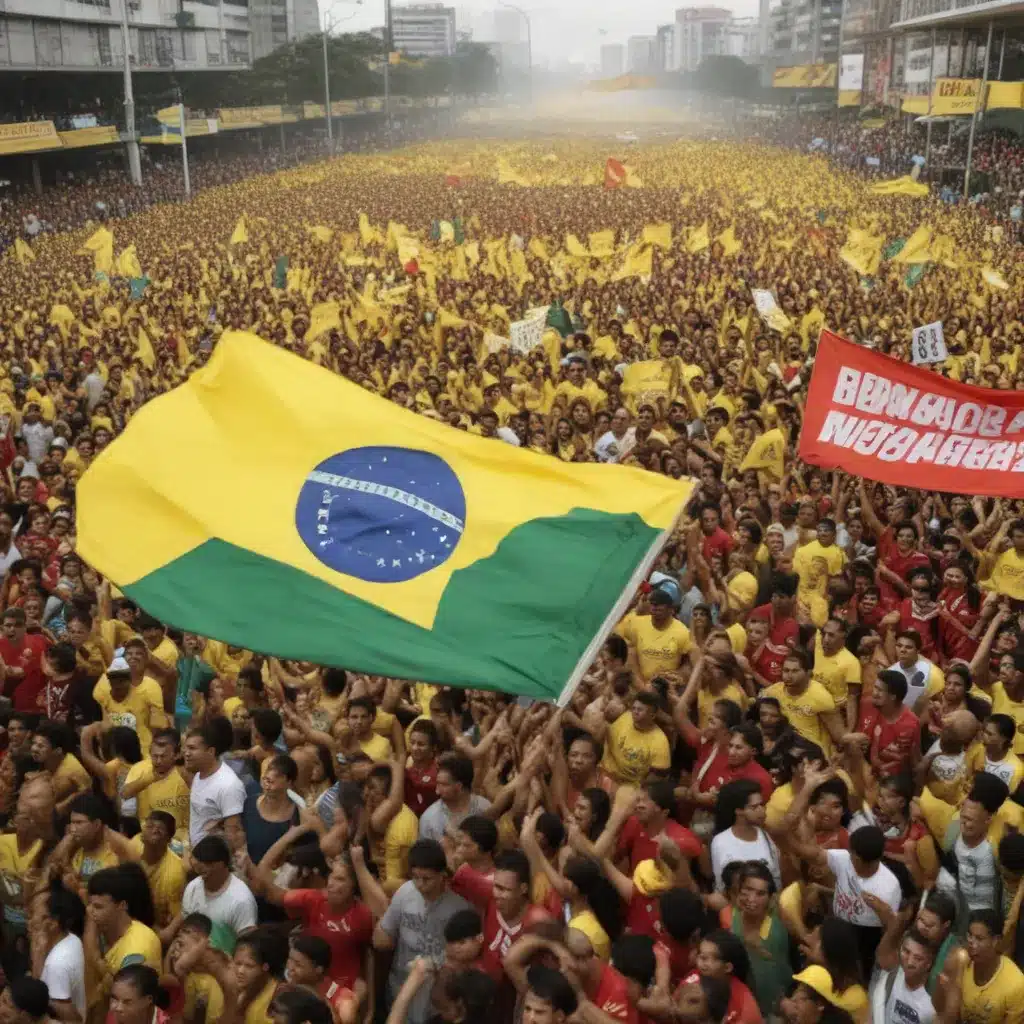
Neoliberal Economic Policies in Brazil
The rise of neoliberal policies in Brazil over the past few decades has had a profound impact on the country’s beloved football industry. As the government pursued privatization, deregulation, and a reduced role for the state, the business of football was transformed.
Impact on Football Industry
The privatization of football clubs was a key part of the neoliberal agenda. Iconic Brazilian clubs like Flamengo, Corinthians, and São Paulo were increasingly run as profit-driven enterprises, rather than community-owned institutions. The emphasis shifted towards generating revenue through sponsorships, broadcasting rights, and merchandising – often at the expense of traditional fan engagement and grassroots participation.
Privatization of Football Clubs
The trend towards privatization saw many clubs taken over by wealthy businessmen and investors, who sought to maximize returns. This changed the dynamics of ownership, with clubs becoming beholden to shareholders rather than supporters. Fan influence and democratic decision-making were sidelined in favour of top-down, corporate control.
Commercialization of Football
Neoliberal policies also fuelled the commercialization of the Brazilian game. Leagues like the Brasileirão became more tightly controlled by media conglomerates, who squeezed clubs for broadcasting rights. Player salaries skyrocketed as the richest teams competed for global talent, while ticket prices put match attendance out of reach for many working-class fans.
The Brazilian Football Socialist Movement
In the face of these profound changes, a grassroots socialist movement emerged to challenge the neoliberal transformation of Brazilian football. Rooted in the country’s rich history of political activism and social justice, this movement sought to reclaim the game for the people.
Origins of the Movement
The Brazilian Football Socialist Movement has its origins in the broader left-wing opposition to neoliberalism that swept the country in the 1990s and 2000s. Inspired by the rise of the Workers’ Party (PT) and the “Pink Tide” of left-wing governments across Latin America, football fans, players, and community organizers began to mobilize against the commercialization of the sport.
Socialist Ideologies in Football
At the heart of the movement were socialist ideologies that emphasized collective ownership, democratic participation, and the primacy of social needs over private profit. Supporters drew inspiration from historical examples of worker-owned football clubs, as well as the principles of “Buen Vivir” (living well) and “Sumak Kawsay” (good living) that underpinned the visions of progressive Latin American governments.
Resistance to Neoliberal Reforms
The Brazilian Football Socialist Movement mounted fierce resistance to the neoliberal reforms sweeping the industry. Fans organized boycotts, protests, and direct actions to challenge the privatization of clubs, the exploitation of players, and the commercialization of the game. They advocated for a return to community ownership, worker-led management, and the prioritization of football’s social and cultural functions over pure profit motives.
The Brazilian Football Industry
Despite the rise of the socialist movement, the Brazilian football industry remains a complex and often contradictory landscape, reflecting the broader tensions between neoliberal and socialist forces in the country.
Professional Football Leagues
The Brasileirão, Brazil’s top professional league, is a prime example of these tensions. While the league has become increasingly commercialized, with lucrative broadcasting deals and high-profile sponsorships, it has also witnessed the emergence of supporter-owned clubs and fan-led initiatives that challenge the prevailing neoliberal model.
Football Club Ownership
Club ownership in Brazil is a mixed bag, with a combination of privately-owned, publicly-traded, and supporter-owned models. The socialist movement has had some successes in establishing democratically-run, community-oriented clubs, but these remain a small minority in the face of the dominant neoliberal paradigm.
Football Player Welfare
The treatment of players has also been a flashpoint, with the socialist movement advocating for improved working conditions, fair wages, and greater protections against exploitation. While some progress has been made, the industry remains heavily skewed towards the interests of wealthy club owners and global talent brokers.
Intersections of Politics and Football in Brazil
The Brazilian Football Socialist Movement has emerged as a powerful political and cultural force, using the game as a site of resistance and a vehicle for broader social and economic transformation.
The Role of Football Fans
Football fans have been at the forefront of the socialist movement, organizing fan groups, ultras, and supporters’ trusts to challenge the corporate takeover of the game. These grassroots initiatives have sought to reclaim the cultural and social significance of football, emphasizing its role as a community-based institution rather than a profit-driven enterprise.
Grassroots Activism in Football
Beyond the stadiums, the socialist movement has also engaged in broader grassroots activism, using football as a platform to address issues of social justice, economic inequality, and political corruption. Activists have organized community-based projects, such as youth football programs and cooperative ventures, to promote the socialist ideals of collective ownership and democratic participation.
Football as a Site of Political Contestation
The intersection of football and politics in Brazil has become increasingly pronounced, with the sport serving as a battleground for the clash between neoliberal and socialist forces. From the protests against the 2014 World Cup to the ongoing struggles over club ownership and league governance, football has become a central arena for the broader ideological and political struggles shaping the country.
Across Brazil, the Football Socialist Movement continues to push for a reimagining of the beautiful game, one that prioritizes the needs of the people over the profit motives of the elite. As the neoliberal juggernaut rolls on, this grassroots movement remains a powerful force for social and economic transformation, using the passion and community of football to drive a more equitable and just society.

